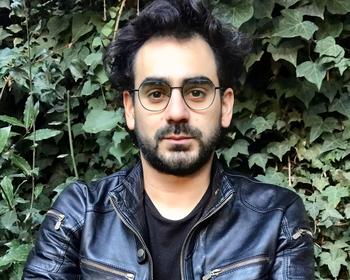Cristián Orrego Rivera

International Research Training Group 'Temporalities of Future'
PhD Candidate
Project: "The relevance of voodoo in the formation of the Haitian nation, and in the production of symbolic capital of the Haitian community in Chile"
Education
|
Since 09/2020 |
PhD Candidate in Latin American Studies, Universidad Nacional Autónoma de México (UNAM). |
|
03/2016 – 12/2018 |
Master in Sociology, Universidad de Chile. |
|
03/2012 – 12/2012 |
Diploma in Ethnicity and Contemporary Indigenous Movementes, Universidad de Chile |
|
03/2009 – 12/2009 |
Diploma in Regional Integration, Universidad de Chile. |
|
March 2002 – 12/2009 |
Bachelor in Political Sciences, Universidad de Chile. |
Work Experience
|
Since 06/2020 |
Researcher, Organización Internacional para las Migraciones (OIM). |
|
10/2014 – 12/2020 |
Researcher, Centro Latinoamericano y Caribeño de Demografía (CELADE), de la Comisión Económica para América Latina y el Caribe (CEPAL). |
|
03/2020 – 12/2020 |
Researcher, Proyect CONICYT “Migraciones contemporáneas en Chile: desafíos para la democracia, la ciudadanía global y el acceso a los derechos para la no discriminación”, Universidad de Chile. |
|
03/2019 – 12/2020 |
Researcher and Coordinator, Centro de Desarrollo Social (CEDESOC), Universidad Tecnológica Metropolitana (UTEM), Chile. |
|
12/2019 – 02/2020 |
Consultant, Banco Interamericano de Desarrollo (BID). |
|
03/2016 – 09/2018 |
Consultant of Immigration Policy and Coordinator of the Technical Council of Immigration Policy, Chile. |
|
02/2015 – 02/2016 |
Researcher, Instituto Nacional de Estadísticas (INE), Chile. |
|
02/2013 – 09/2014 |
Lead of International Cooperation, Fundación América Solidaria Haití. |
Proyect: "The relevance of voodoo in the formation of the haitian nation, and in the production of symbolic capital of the Haitian community in Chile"
The research project seeks to know the social representations of voodoo by the haitian community in Chile, its relationship with the process of shaping the haitian nation, and its relevance in the production of symbolic capital. The process of symbolic construction is analyzed, which begins with the conquest of the “Nuevo Mundo”, continues with slavery, and extends to the present day.
The research addresses the study of Haitian voodoo from two perspectives: one, linked to its relevance in the slave liberation process that achieved Haiti's independence, and that makes voodoo, today, relevant in the formation of the haitian nation; and another, linked to the imputation of signifiers of barbarism and savagery, which make voodoo a taboo subject for haitians themselves, hindering their recognition and self-recognition.
Finally, the process of arrival and reproduction of the Haitian community in Chile is analyzed, and in particular, the representations that make Haitian voodoo as an identity element in two ways: as a potential cohesive in the form of symbolic capital that is translated in social and community practices, and as a potential risk for the process of integration into the receiving society.
Chapters
Orrego, C. and Arellano, C. (2021): "Sello Migrante or Restrictive Hospitality: The Case of the Commune or Quilicura in Santiago de Chile", in: L. Faret and H. Sanders (eds.), Cities protecting migrants: Shifting dynamics of sanctuary policy in the Americas, Switzerland: Palgrave Macmillan, pp. 155-182.
Orrego, C. (2020): "La crisis como causal de retorno en la migración: estallido social, pandemia y el mito del sueño chileno", in: Los retos de un retorno digno y la corresponsabilidad desde los países de origen, España: AESCO.
Articles
Orrego, C. & Herrera, C. (2019): "Política migratoria y violencia institucional: análisis biopolítico del caso chileno", Revista Némesis, 15: 51-75.
Orrego C. & Martínez J. (2015): "Retorno en la migración: una mirada a sus múltiples facetas", Revista Latinoamericana de Población (RELAP), Serie Investigaciones N°16: 25-54.
Martínez J. & Orrego C. (2015): "Nuevas tendencias y dinámicas migratorias en América Latina y el Caribe". Santiago de Chile: Serie Población y Desarrollo. CEPAL, Naciones Unidas.


